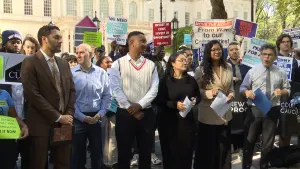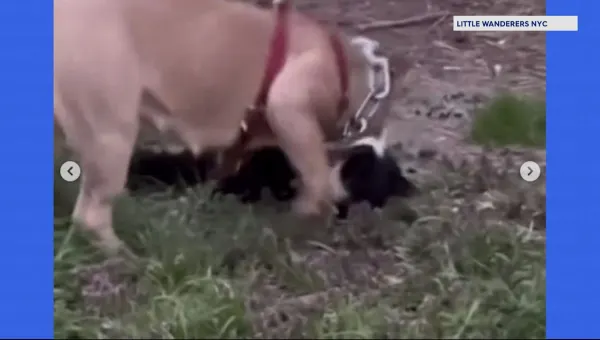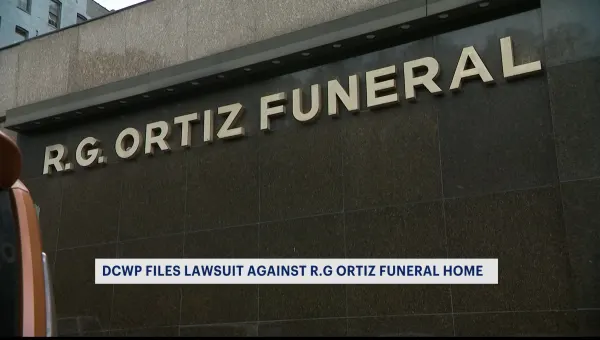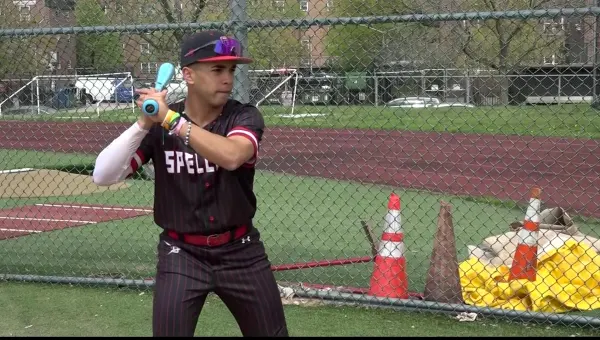National interest in Gabby Petito case highlights disparity when it comes to missing people of color
The national interest in the Gabby Petito case is shining a light on what critics say is a "racist double standard" when it comes to attention and interest in other missing persons cases involving women of color.
News 12 Staff
•
Sep 23, 2021, 9:54 PM
•
Updated 949 days ago
Share:
More Stories
2:34

Guide: Safety tips to help prevent home burglaries
56ds ago2:19

Guide: Safety measures to help prevent fires and how to escape one
204ds ago2:40

Mayor's budget cuts: A controversial solution amidst immigration crisis
222ds ago2:07

Tips on how to avoid confrontation with sharks while swimming in the ocean
288ds ago2:33

5 tips to prevent mosquito bites and getting sick from viruses
299ds ago2:39

NEWS 12 EXCLUSIVE: ‘He drove into the water.’ Car drives off dock in Patchogue; News 12 crew helps in the rescue
319ds ago2:34

Guide: Safety tips to help prevent home burglaries
56ds ago2:19

Guide: Safety measures to help prevent fires and how to escape one
204ds ago2:40

Mayor's budget cuts: A controversial solution amidst immigration crisis
222ds ago2:07

Tips on how to avoid confrontation with sharks while swimming in the ocean
288ds ago2:33

5 tips to prevent mosquito bites and getting sick from viruses
299ds ago2:39

NEWS 12 EXCLUSIVE: ‘He drove into the water.’ Car drives off dock in Patchogue; News 12 crew helps in the rescue
319ds agoThe national interest in the Gabby Petito case is shining a light on what critics say is a "racist double standard" when it comes to attention and interest in other missing persons cases involving women of color.
The term "missing white women syndrome" is grabbing headlines as the phenomenon involving what some say is the undeniable difference in cases like Petito's compared to Black and brown women.
"And I just don't understand why that didn't happen with my child, because I don't feel like people looked for her like that," says Elvia Polanco-Crump, of Rock Hill.
Polanco-Crump's daughter, Shaniece Harris, is one of at least 40 people who are missing or presumed dead in the Hudson Valley who are mostly all Black and Latino.
"Is it racial? I don't know, but what should matter is every person's life should matter," says Domingo Ramos, of Hope Alive 845.
"I don't think we can ignore the realities of systemic racism," says Kellyann Kostyal-Larrier, executive director of the domestic violence agency, Fearless!
Advocates point to local, unsolved cases like that of Petra Mohammed and Jessica Lopez, both whose remains have never been found.
Their cases were equally as tragic but never garnered the same amount of national attention.
The inequality is seen among indigenous women as well.
Cases like the Long Island disappearance of 25-year-old Kimberly Ratushnick are widely unknown and seemingly forgotten. And while it may never be fully understood why some cases have garner more attention than others, change can start now.
"I think we have a responsibility to continue to question the coverage," Kostyal-Larrier says.





